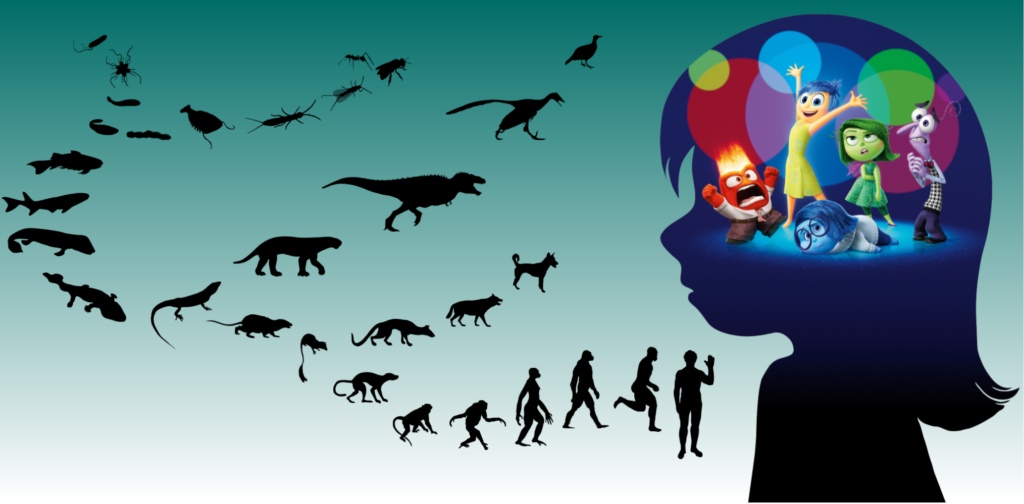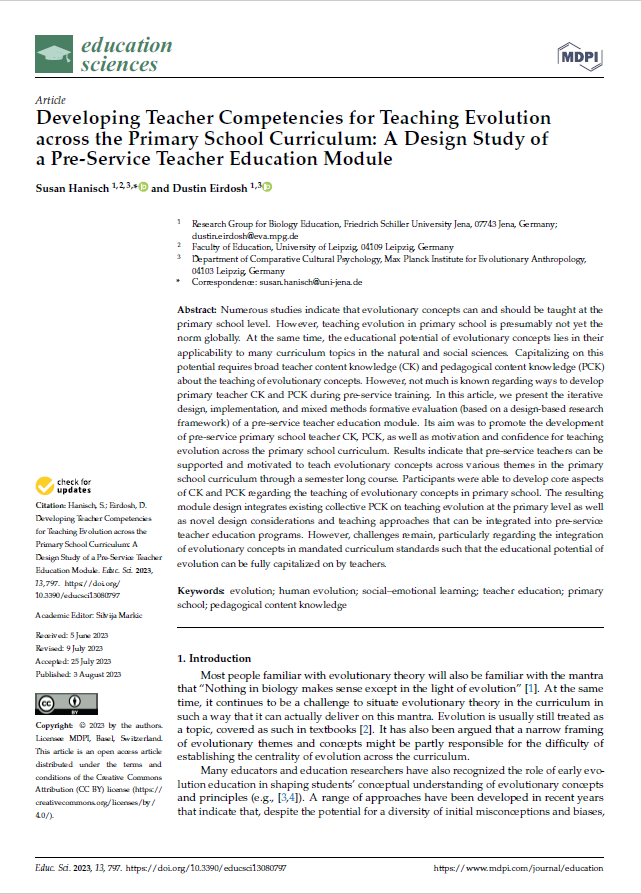TeachingBase
Evolutionary Anthropology in the Primary School
The field of evolutionary anthropology allows many connections to primary school curricula, in particular with natural and social science as well as ethics and social-emotional learning. This is due to the interdisciplinary and transdisciplinary orientation of this field, with the focus on human beings, our history, current cultural diversity and flexibility, as well as the relationships between people and their environment.
Research shows that from an early age, children can understand the essential connection between organism traits and their functions for life, the concept of adaptiveness, and the process of natural selection. At the same time, children (and adults) may also have misconceptions about some concepts of evolution or learning difficulties around these scientific perspectives. These challenges can be made visible through appropriate teaching methods and then changed or overcome.
In this module, we look at how evolutionary anthropology topics and concepts connect to various primary school curricula and learning objectives, and learn about research, teaching materials, and methods to use evolutionary theory to explore natural, technical, historical, social, and cultural topics.

- Grade or expertise levels Expert, Graduate, Pre-service biology teacher education, Teacher education, Undergraduate
- Language(s) English, German
- Learning Goals Conceptual Thinking, Cooperation Competency, Evaluation Competency, Evolutionary Thinking, Future Thinking, Interdisciplinary Thinking, Metacognitive Competency, Nature of Science, Self-Regulation Competency, Systems Thinking


